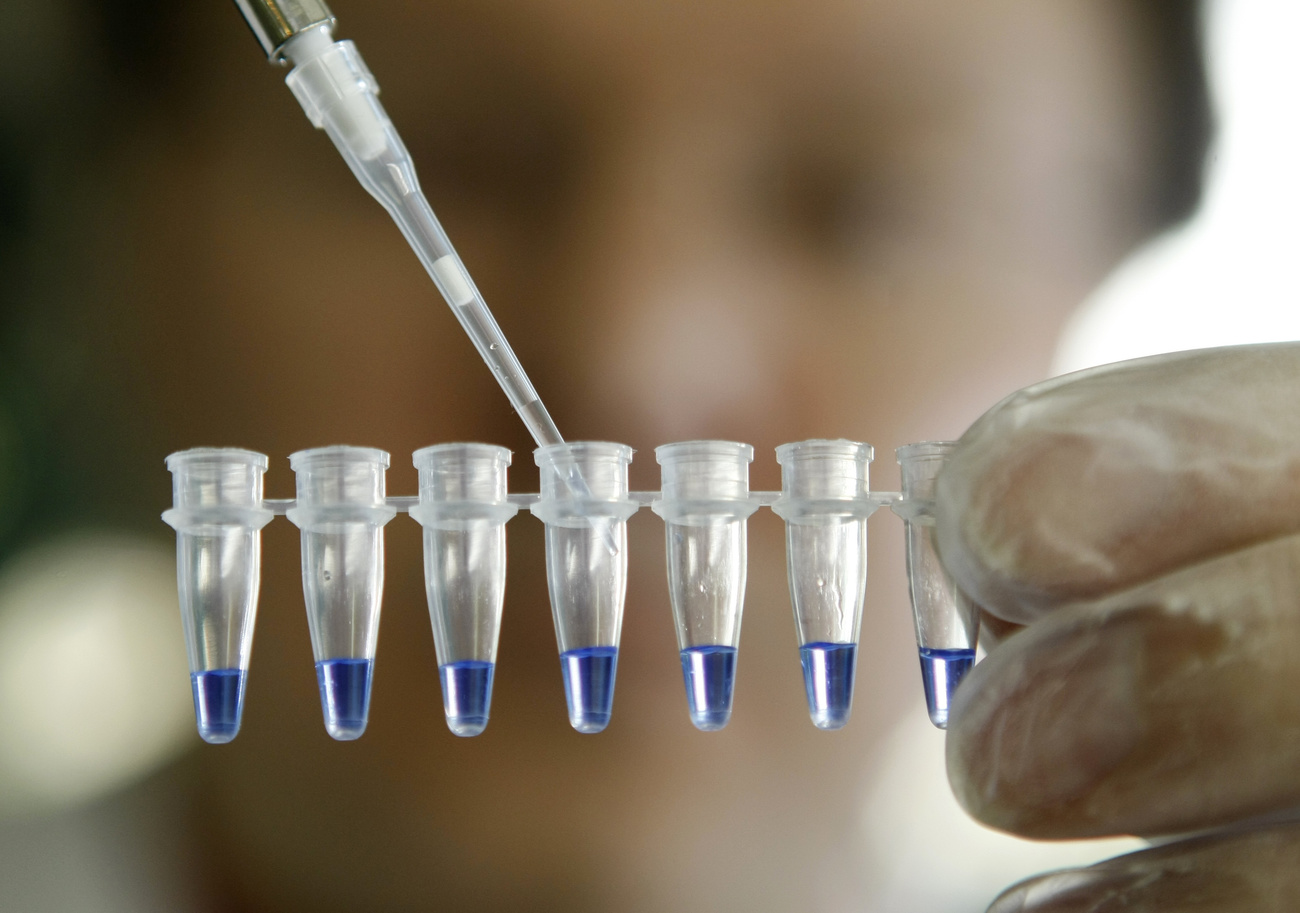
DNA testing remains in legal grey zone despite updated law

According to a study, the revision of the Swiss law on human genetic testing, which is due to enter into force next year, does not remove all the uncertainties associated with novel uses of DNA tests.
A report released on Tuesday by the Foundation for Technology Assessment (TA-Swiss) warned that the revised law will not plug all the potential loopholes generated by future applications of DNA testing.
The foundation said the line between medical and “lifestyle” tests (genealogy or tailor-made diets, for example) is blurry. Customers can obtain the raw test data and have it re-analysed by other suppliers. It is therefore possible to obtain medical information from lifestyle tests, despite the fact that the revision of the law excludes public access to medical tests, the statement said.
The revised law allows DNA testing providers to only transmit the information authorised for open access testing to individuals and withhold the rest. This is problematic if the data withheld indicates a possible disease for which a treatment exists, and the TA-Swiss study recommends that an exception be made for such situations.
TA-Swiss also had a problem with the sharing of anonymous data with third parties. Such data could offer a lucrative business for test providers if they resell it, while pharmaceutical companies could use it to develop products. The authors of the study advocate the requirement to seek explicit consent from clients and to consider whether such data should not instead be a freely available public good for research.
Solving criminal cases
DNA testing can also provide clues in forensic investigations by providing a DNA profile of a suspect. In Switzerland, it is currently only possible to search for matches in existing DNA databases.
However, the DNA Profiling Act, which is currently being revised, will allow DNA phenotyping, a method capable of providing clues about certain physical traits, such as height or hair and eye colour.
TA-Swiss pointed out that such results indicate only probabilities and are therefore liable to error. The study recommends using this method only in particularly serious cases, “because while it can exonerate a wrongly accused person, it can also incriminate an innocent person”.

In compliance with the JTI standards
More: SWI swissinfo.ch certified by the Journalism Trust Initiative


























You can find an overview of ongoing debates with our journalists here . Please join us!
If you want to start a conversation about a topic raised in this article or want to report factual errors, email us at english@swissinfo.ch.